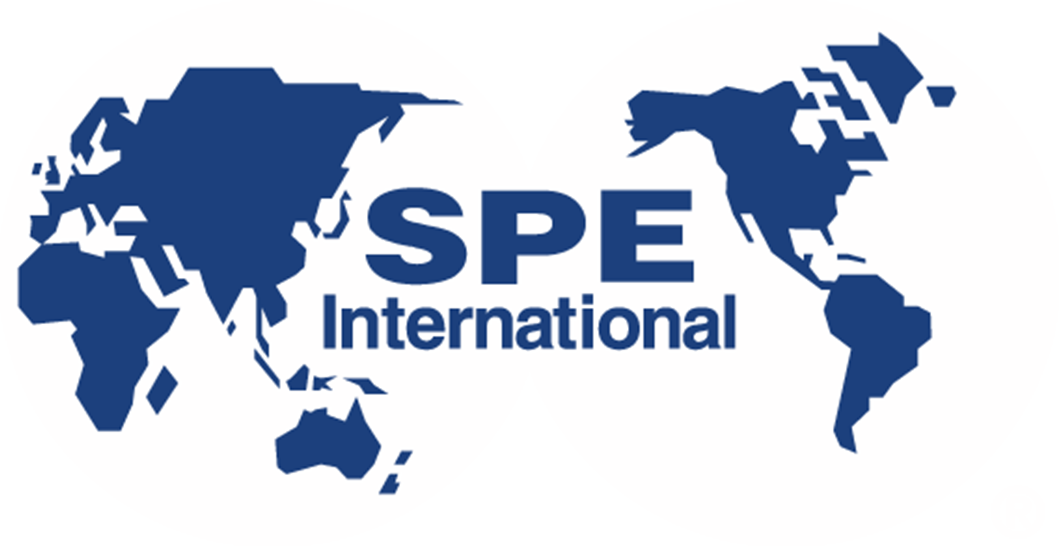Agenda
Please Note: All times are Coordinated Universal Time +8 (UTC+8)
Tuesday, February 08
Well Integrity management is looked at in three distinct stages, the first stage is during the well design which includes material selection, engineering design, cement design, coating and inhibitors and cathodic protection. The second stage is monitoring the well during the life of the well locating possible leaks and/or loss of metal. The last stage is to manage and control any well integrity issues using specialised products, services and techniques.
Seats are limited to 25 participants, register now to save your seat
Tuesday, February 15
Speaker
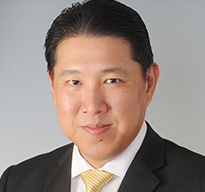
Benjamin Choo
Senior Vice President
Well Engineering and Operations Division
PTT Exploration and Production Public Company Limited
Under unprecedented crises due to COVID-19 pandemic, which led to historical collapse of oil prices, it has been proven that the wells industry is able to take on these challenges to warrant business continuity, with a new focus towards a sustainable future through increased collaboration and new approaches between operators, business partners, and technology providers. Unifying the wells industry and finding the seamless solution to turn challenges into opportunities is crucial to reduce the profound impact to the industry.
The panel session will feature a dialogue with senior executives on the workshop theme, discussing critical areas such as how will the industry look like post-pandemic, leveraging on technology, best practices, and new creative or innovative ways to address industry competency gap. The session aims to provide insights on performance assurance and operational excellence without compromising HSE requirement.
Speakers
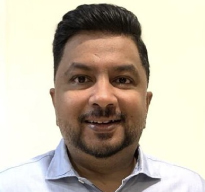
Abdul Malek Ismail
General Manager - Wells
ExxonMobil Exploration & Production Malaysia Inc.
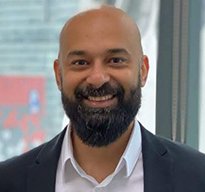
Fiaz Babu
Regional Manager – Asia Pacific
Halliburton
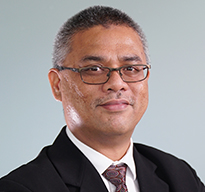
Norazan Abdul Kadir
Head of Well Management
Malaysia Petroleum Management
PETRONAS
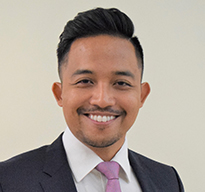
Adrin Shafil Ahmad Nasir
Chief Operating Officer
Velesto Energy Berhad
This session will consider the state of the art in remote operations and the increasing capabilities to automate existing processes. Operating with fewer personnel onsite has long been desired, however, this is now a necessity since the COVID-19 pandemic and with the acceleration of adopting remote operating techniques. Automation offers the possibility to take this to the next level, delivering further safety, cost, quality and sustainability benefits. Areas for discussion may include:
- Remote monitoring and control of wellsite operations and production
- Demonstration of innovative technologies used to disrupt traditional well operations
- Personnel optimisation and multiskilling
- Automation of well construction and production activities – current capabilities and future ambitions
Discussion Leaders:
-
Wireline Remote Operations on a Workover Rig – A Case Study, Mohammad Iffwad, Halliburton.
-
Design and implementation of digital and automation technologies to enable and sustain a step-change in operational efficiency onsite and remote, Nurfitrah Mat Noh, Schlumberger.
-
Implementation of Remote Hydraulic Workover Rig Inspection and Acceptance via Assisted Reality Technology, Low Jun Leon, PETRONAS Carigali Sdn Bhd.
-
An Integrated Approach to Well Completion and Well Intervention operations, Kok Yi Damien Wee, TechnipFMC.
Healthy, safety, and envinronment (HSE) is the key element in all aspect of wells, from early planning and concept phase up to abandonment. In the early years, the safety policy, procedure, and practices were not in firmly in place and standardized, which resulted in major incidents around the world such as Piper Alpha incident in 1988, Exxon Valdez spill in 1989, and Deepwater Horizon rig / BP Macondo well control incident in 2010. These major incidents that have changed the way our industry operate, where operators now strive to develop detailed operations and well integrity documentations that integrates with HSE policies.
This session is designed to discuss current best practices throughout the well lifecycle, and how it reflects the company’s operational philosophies and objectives. Some of they discussion point is to share how HSE is meeting the regulatory requirement and industry standards (such as OSHA, API, BS, IMO), and the positive impact it brings to the company, employees, and the industry as a whole.
Discussion Leaders:
-
Hearts and Minds Program: Achieving Generative HSSE Culture, Ahmad Luqman Johan, PETRONAS.
-
HSE Key Challenges, Best Practices, and Lessons Learnt – Sabah Deepwater Campaign 2021, Shathiskumar Sockalingam, PETRONAS Carigali Sdn Bhd.
-
Process Safety in Wells Operations - Field Implementation, Ahmad Azmeer, ExxonMobil Exploration & Production Malaysia Inc.
Wednesday, February 16
Well integrity management is a requirement for all wells in order to have the license to operate, especially in environmentally critical areas. Well integrity is often managed as part of the asset’s lifecycle production and maintenance.
Therefore, this session shall have the audience briefed on well integrity as a lifecycle management for all wells in its phases. It is a multi-disciplinary effort that has several stakeholders, phases of application, and as an endeavor that requires diligent planning throughout the phases of field development. Maintaining well integrity during the well operational phase is a norm which requires the practice of proactive pressure monitoring programmes, barrier verification, and maintenance programmes throughout the phases.
Well intervention is the main enabler for well Integrity and production enhancement. This session provide the avenue for all well intervention method such as slickline, wireline, coiled tubing, and other relevant rigless intervention to share their best practices and lessons learned with the industry. It also encourages presentation on the current course of project management integration between interventions and new technology application.
This session has been designed to deliberate well integrity and intervention during well construction (technologies related to integrity improvement), integrity in regulatory environment, well barriers elements and reliability, integrity during intervention, cost effective strategies, and reliable long-term abandonment barriers. The session also aims to share a deeper review of the design, diagnostics, repair, risk assessment, management and mitigation, and lessons learnt from P&A.
Overall, this is the platform of multiple knowledge sharing for all stakeholders to gain more insights of the past, present and future best practices from both well integrity and intervention, and new technologies applied throughout the asset’s lifecycle. At the end of the session, audience shall gain in depth understanding on well integrity and intervention’s methodology and contribution in each phases of hydrocarbon’s llifecyle, and the importance of continuous meticulous management in all aspects of a well production design and production.
Discussion Leaders:
- Maximizing Integrated Value in Matured Offshore Operations by pursuing Subsurface and Wells Opportunities, Amandeep Kaur Jusvir Singh, ExxonMobil Exploration & Production Malaysia Inc.
-
Alternative Application of Pressure Activated Sealant in Tubing Repair, Kellen Goh Hui Lian, PETRONAS Carigali Sdn Bhd.
-
Managing Well Integrity Challenges: First Integrity Restoration For P&A application in APAC-Sealant Treatment, Nurul Shazleen Husna Binti Saad, Reservoir Link Energy Berhad.
-
Innovative Approach to Manage Hydrocarbon Release at Cement Conductor, Tan Rui Qiong, PETRONAS Digital Sdn Bhd.
-
[ePoster] Whipstock Selection Criteria for Cased Hole Sidetrack Operations, Low Yit Seng, AsiaPac Oil & Gas Sdn Bhd.
The present condition of the oil and gas industry calls for innovation and new technologies to help maneuver the uncertainties going into the future. Recently, new methods and technologies have been deployed successfully in Asia Pacific, which suggests how these innovative approaches are continuously evolving and invented. This session will discuss case studies specifically during drilling, completion, surveillance, and well intervention stages, with details on well challenges, the benefits and limitations of these solutions.
Discussion Leaders:
-
Eliminates Survey Time, Improves Drilling Efficiency and Reduces Stuck Pipe Risks: A Breakthrough Technology, Muhammad Afiq Zaim Za'ba, Schlumberger; Mondali, PETRONAS Carigali Sdn Bhd.
-
First deployment of CoilHose technology in Indonesia in a highly deviated well, Stian Steinsholm, Expro; Gerardus Pancawisna, PERTAMINA.
-
FiberLine Intervention used as a simple and fast leak detection system, Craig Feherty, WellSense Technology Ltd.
-
First Ever TR1P System Installation in Malaysia, Nurul Iffah Muhammad Garib, PETRONAS Carigali Sdn Bhd.
-
[ePoster] New Generation Disappearing Completion Plug Valve, Abdul Mushawwir Bin Mohamad Khalil, MIT Technologies.
-
[ePoster] Avoiding Perforating The Adjacent Tubing String In A Dual Gas Completion With "entwined Tubings" Using Electromagnetic Flux
Mapper, Ahmad Uzair Zubbir, ExxonMobil Exploration & Production Malaysia Inc.
High-pressure and high-temperature fields are rather new concerns that occurs mainly in the Gulf of Mexico, North Sea, Southeast Asia, Africa and the Middle East. There are many factors that need to be addressed and learned in order to safely overcome the challenges of drilling, maintaining, operating, and producing from HPHT wells.
In addition, with discoveries of carbonate reservoirs around the world and Asia being one of the significant contributor, many oil companies are inspired to explore and develop carbonate wells due to the fractures and vugulars nature of it’s formation despite uncertainties and challenges of these wells. As such, companies are compelled to meet or exceed a vast array of technical restrictions as well as environmental, health, and safety standards.
This session is dedicated to discuss new findings and technologies on operating HTHP and carbonate wells, including sharing of case studies, challenges and success stories.
Discussion Leaders:
-
Qualifying OCTG premium Connections for Unique High Temperature External Gas Pressure Environments, James Forbes, JFE-TC.
-
Implementation Of Pressurized Mud Cap Drilling And Casing Downhole Isolation Valve To Successfully Develop Gas Carbonate Reservoir Offshore Malaysia, Timothy McCluskey, Weatherford.
-
"Plan a Well Today... Start Drilling Tomorrow", Ilhan Akbar, Halliburton.
Contracts are established between two parties or more to maximise value, increase profitability, and securing commitments from operators, rig operators, technology and/or service providers. Numerous challenges are associated with contracts establishment and operationalization, such as time pressure, local regulations, managing contract performances, and execution goals versus overall company strategies to mention a few. Contract strategies have evolved drastically over the last few years based on best practices and lesson learnt. Depending on the business agenda, individual discrete contracts may produce better efficiency, and in some instances, integrated ones could be more beneficial to all parties involved.
As the oil industry charts its course after surviving low oil prices, and hopefully recovering from the worst of the COVID-19 pandemic, it is important for companies to develop contracts with a focus on increased efficiency and collaboration, application of new practices and technology and ultimately, to continuously improve wells operation performance. This session will focus on the latest developments, lesson learnt and best practices in contracting for wells operations including rig, drilling, completions, workover, well intervention, and well integrity.
Discussion Leaders:
-
A Win-Win Integrated Contract Journey - A Case Study, Sirag Khalifa Al Zayani, EnQuest.
-
“IRDC a strategy to curtail cost in challenging O&G market environment”, Mohd Saiful Anuar, PETRONAS Carigali Sdn Bhd.
-
Integrated Well Services, Managing Risk, Alahdal A. Hussein, T7 Global Berhad.
Thursday, February 17
Oil price slump in 2020 and the on-going COVID-19 pandemic has gravely affected the oil and gas industry as many projects around the world came to a halt. Brownfield development projects [KN1] particularly, are becoming more difficult to pursue as the marginal economic gain deteriorates. Therefore, operators need to embrace shifts in mindset and resort to innovative measures to tap resources without compromising safety. One of the solutions that is advocated globally is slim wells.
Experiences from the past have shown that well cost could be reduced via slim wells due to less material and logistic requirements. Nevertheless, advanced planning is required as the change in well architecture, drill pipe size, and Bottom Hole Assembly (BHA) may pose challenges for drilling crews with regards to downhole dynamics. With proper planning and sound operational practices, slim wells should result in considerable savings in well cost, taking into consideration in post-drilling operations such as well intervention, which could be challenging due to the smaller tubing requirement.
To gain maximum benefit from slim wells, the application needs to be supplemented by other low-cost well enablers such as batch drilling and offline operations. This can be achieved by streamlining the well design and execution philosophy among wells, subsurface, facilities, and production/asset teams. The planning aspect should therefore encompass subsurface study to achieve optimum placement of slim wells, well design/engineering that incorporates slim hole drilling risks or performance based on historical track record, prudent contingency planning, clear demarcation of operational responsibilities, and crew training. A strong collaboration between the rig contractors and drilling service providers is also essential to ensure all parties continuously build the learning curve, improve personnel competency, and enhance equipment performance to fit slim well requirements.
Slim well design is certainly gaining traction in this region. With more implementation, lessons learnt, as well as best practices identified and adopted, operators are on the right track in mastering slim well delivery. Once slim wells become the “new norm”, bright future awaits for projects’ continuation.
Discussion Leaders:
-
Paradigm Shift: Applying Coiled Tubing Drilling Concept to create value for infill drilling and gas cap blowdown project under PETRONAS Carigali, Ahmad Zahid Murshidi b Zakaria, PETRONAS.
-
Slim Hole Design for Low Cost Well Delivery, M Zulfarid Khalid, PETRONAS Carigali Sdn Bhd.
-
Effective Zonal Isolation Straddle Deployment in a Highly Deviated Slim Completion Well using Electric Line Tractor / Stroker Combination, Muhammad Nabil Ghazali, PTTEP.
-
Slimhole design for Pemanis (PESA) Gas Producer & South Acis (SASA) water injector, Aizal Haziq Abdul Razak, PTTEP Sarawak Oil.
Well P&A marked the end of a well lifecycle before the well is abandoned and returned to mother nature. It is every operator's responsibility to ensure the remaining hydrocarbon in the wellbore is contained within the established barriers, and more importantly with no hydrocarbon/pressure migration to surface and into groundwater source. P&A activity should be governed by stringent P&A standards and regulations set by the local regulatory authority. This is to ensure that the integrity of the abandoned wells will last for an eternity and not compromised, despite the effort to optimise the cost. In general, any P&A strategy should aim for an effective, one-off barrier placement, and restoration method to meet the barrier envelope requirement and verification acceptance criteria.
Issues such as aging facilities, missing well/operation data, deteriorating existing barriers, poor well design, logistical issues due to COVID-19 are among the common challenges that need to be addressed comprehensively in order to successfully P&A the wells.
This session aims to offer an overview and present best practices, lessons learned, new methodologies, materials, and techniques to achieve the most efficient and economical solutions for a safer, smarter, and cost effective well P&A.
Discussion Leaders:
- Optimizing Casing Cutting and Recovery, Nadzim Al-Rash bin Putit, AsiaPac Oil & Gas Sdn Bhd.
-
What Advantages a Hydromechanical Perforating Tool Can Bring to Your P&A, Abu Yazid Md Said, Lee Energy Systems / Integratus.
-
Abandonment Of A Highly Complex Well: A Novel Approach In P&A Design Of A Well With Complication Of The Longest Cemented Coiled Tubing Inside Its Production String, Mohamad Anas Najmi Bin Abdul Razak, PETRONAS Carigali Sdn Bhd.
-
Reducing Asset Risk and Liability through Contracting Enablement: A Lump-Sum Turnkey Decommissioning and Restoration Case Study from Oman, Steven Allan Canny, Weatherford.
The massive growth of the oil and gas industry and its energy consumption has led to significant carbon and greenhouse gas (GHG) emissions. Global carbon emission targets and how to meet them are high on operators’ agenda. The calculation of GHG emissions, air pollutants, fuel costs and consumptions is now taken into consideration before well construction takes place. As this is a new approach by many industry players, more demand can be seen in terms of technology application to rationalise this vision. From CO₂ storage to hydrogen as renewable energy, this session will discuss and exchange ideas, innovation, and opinions to enhance the capability of industry players to reduce carbon emissionas and protect our mother nature.
Discussion Leaders:
-
Conceptual well completion design for CCUS project. A case study of K1 field CCS in offshore Malaysia, Mohd Azuan Bin Abu Bakar, PETRONAS.
-
Quantifying the carbon footprint of O&G technologies to accelerate the path to net-zero, Karen Spenley, Schlumberger.
Deepwater drilling activities are increasing in many parts of the world. These wells have their own inherent set of challenges and potential issues that requires innovative solutions and technologies, and this is in addition to the increased risk exposure and cost. The planning and execution of deepwater wells is just as challenging as it is to drill them. There are many different solutions that need to be incorporated to help mitigate any potential issues, and this often involves pushing the envelope close to or beyond what is the current state of the art, and being bold in our approach. Given the current backdrop to the global economy, as new developments come on stream in the near-term, there will undoubtedly be an increased focus on operational efficiencies wherever possible bearing in mind the industry’s need to work safely.
Discussion Leaders:
-
Riserless LWI Deployed Electric Line Stroker Application for Safe and Secure Crown Plug Retrieval and Setting in High-Current Deep-Water Operations, Rosano Sosrohadisewoyo, Altus Intervention.
-
Smart system for jetting subsea wellhead, Lucian Ng Fu Liang, MIT Technologies.
-
Deepwater Operator Successfully Pressure Tests Casing and Running Tool With Novel Cementing Technology Prior to Running From A 6th Generation Drill-Ship, Tristam Horn, DeltaTek Global.
